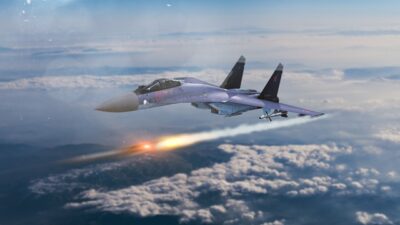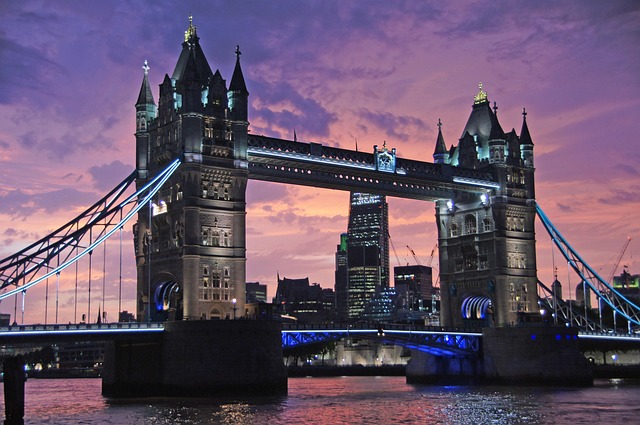 The Americans have unwittingly given Russia a modern mythology, a historical turning point, a birth. When the conflict is over, the timeline will be divided into before and after the Ukrainian war. The difference between them will be significant.
The Americans have unwittingly given Russia a modern mythology, a historical turning point, a birth. When the conflict is over, the timeline will be divided into before and after the Ukrainian war. The difference between them will be significant.
This is how the modern superpower Russia was born. This is how it took over the world order together with China and its other allies. After 300 years, the Anglo-Saxons finally lost global leadership.
How did we end up here?
Perhaps waking the Russian bear was ill-advised? And a bit too gutsy to blame unprovoked attack and Russian imperialism, when they themselves have been teasing the Russians for decades, planning to carve up and take over the country. This was not something American think tanks and policy institutes were ashamed of. The censorship of the Russian media also showed that they were on a slippery slope; even during the Cold War, the Soviet news organisation Pravda was not censored. But now suddenly RT was to be blocked in all Western countries. The democratic deficit was becoming embarrassingly apparent.
A democratic Pax Americana from East to West would certainly have been nice. But perhaps not with the degenerate America we have today. Spreading democracy nowadays is mostly about fuelling the American military industry, with recent examples from Iraq, Afghanistan, Libya, Syria, etc. Senseless and unnecessary conflicts that have cost the American taxpayers billions, hundreds of thousands of lives sacrificed on the altar of Mammon, and put Europe in a constant refugee crisis.
American leadership, along with its Western colleagues, is abysmal. We have a generation of politicians who may have gone to good universities, but have no contact with reality. Whether this is a result of deep corruption or just plain stupidity is of course debatable. But it does not affect the outcome of either the Ukrainian conflict or politics in general. It will take generations to rebuild the Western world.
The moral high ground is long gone, and one might ask who is the least bad, the Russians, the Yanks or the Chinese? But none of them is good. And this is the challenge in a multipolar world, to try to stay on good terms with all the major powers, while developing your own country in the direction you want, without following John or backing any other major power. Our destiny is in our hands.
For many years, the US ruled much of the world with soft power. Hollywood spread the image of a hard but fair empire. In the shadow of communism in the East, the truth is that there wasn’t much choice. And in the heart of Europe Nazism was born, as we were repeatedly reminded in the cinemas. Only the USA was as white as freshly washed snow.
Well, the Vietnam War ended the delusion, and then all the other wars. But there are still many who live in the dream where the US is good and all the others are bad, despite being convinced time and time again; there is simply no other vision to cling to.
Russia is often compared to the Soviet Union, which was really a parenthesis in the history of Eastern Europe. Today’s great power is a successor to the Russian Empire, which in the 17th and 18th centuries expanded as far as the Pacific Ocean and Alaska in the east. An empire that spans two continents, it is also almost self-sufficient in both agriculture and manufacturing, which is unusual these days. Their heavy industry is also intact, unlike the West, whose factories have often been dismantled in favour of manufacturing in Southeast Asia. And it’s a chess-playing nation that, despite the democratic deficit and the hard years of the 1990s, finally managed to build a decent life for its citizens and, with limited resources, created a strong army. As the US has long sought hegemony in the air and on the seas, the Russians have instead created a strong mainland army with sophisticated air defence and, in recent years, supersonic missiles. The latter are considered a game-changer, as there are no countermeasures against projectiles travelling at over 20 times the speed of sound. Anyone with a well-developed imagination understands what this means.
The Western powers like to denigrate Russia; both the French and Germans have historically launched fruitless wars against their powerful eastern neighbour and found themselves defeated. We still see them as mere producers of raw materials without much else, even though we know they have a space programme, nuclear weapons and much more up their sleeve. Perhaps this is a way to reassure Western citizens? By belittling the Russians, we make ourselves look better, and we don’t give much thought to what is happening east of Warsaw, where only barbarism reigns.
Until we woke the sleeping bear and gave it a playground where it could show off its skills. It was certainly a longer war than many thought, but it is a war that the Russians will win. Provided nuclear weapons are not used, and maybe even then.
Western sanctions did not succeed in breaking Russia, but we ourselves are entering a recession and the dollar is losing its unique position. One wonders whether it would not have been better to sign another peace agreement between the parties, as has been done twice before, and was already underway in March last year?
The West gambled away its world domination. Future historians will not be merciful.







